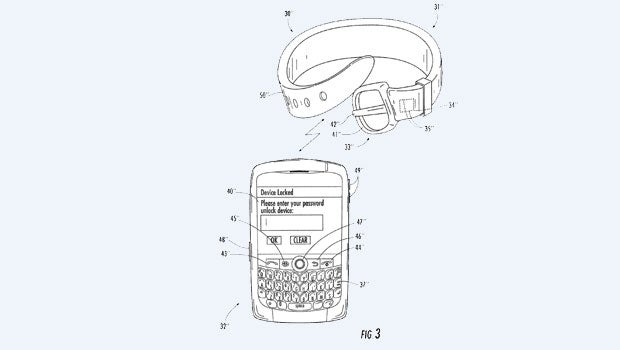BlackBerry patents unlocking phone via wearable device

BlackBerry has patented a method of unlocking a smartphone using a wearable device.
The idea itself isn’t new. Google has even shown it off as a possible feature in Android Wear. But
Instead of just relying on the wearable being near to the smartphone, the wearable would have a physical clip that must be closed in order for it to function. For example, you wouldn’t have to worry about accidentally unlocking your phone if you go near your smartwatch that’s charging on the side. You could choose when to unlock it, in other words, while not losing the convenience of this kind of geofencing tech.
The patent shows a belt and a clip-on device. That doesn’t mean BlackBerry is working on either, of course. But last month the company did admit it was experimenting with wearables internally.
With the Apple Watch due in the New Year, and Microsoft about to launch its own timepiece, BlackBerry is one of the few tech companies that hasn’t jumped on the wearables bandwagon. This could well change soon.
Last month, BlackBerry released the Passport, its first square smartphone. It’s suffered from inventory issues, which the company insists are down to strong consumer demand rather than a low production run.
It’s reported to have sold 200,000 units in the first two days.
Proximity tech – or geofencing as it’s also known – is becoming more and more common. Apple recently patented a way to unlock your car just by approaching with your iPhone. And these sunglasses will send an alert to your phone when you’re separated from them.
Read more: BlackBerry Z10 photos
Via: Bloomberg

